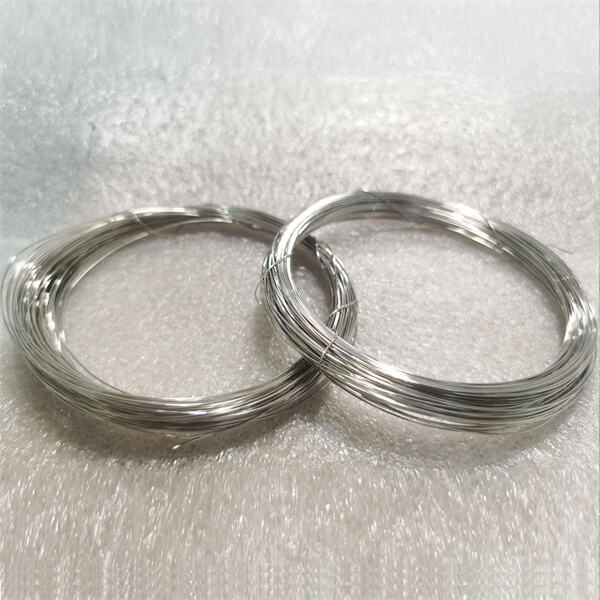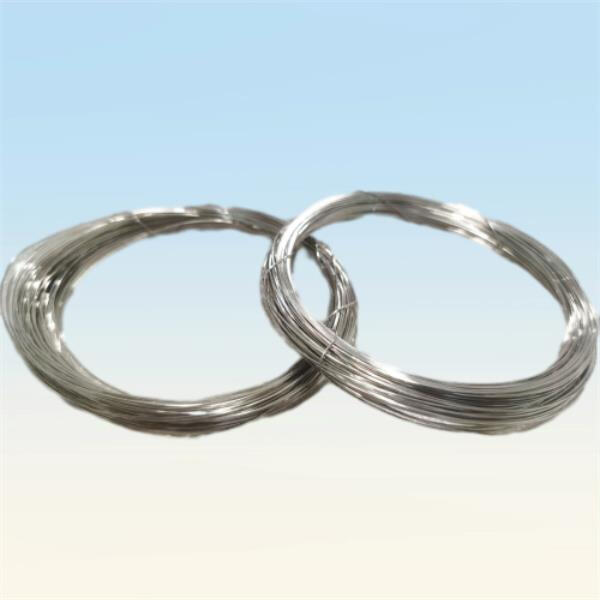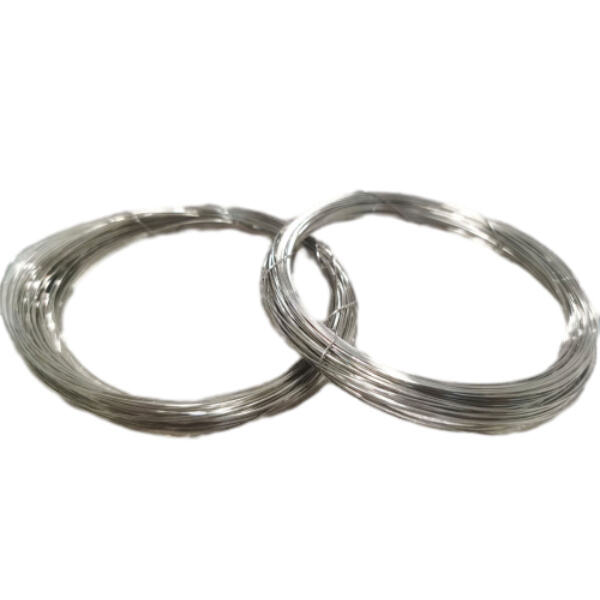We use thermocouples to measure temperature, which are useful tools. They use two dissimilar metals that generate a small electric current when heated. This current tells us how hot something is. Thermocouples can be made from other materials. Did you know that? It is true. So, let’s find out more about these materials and why it is crucial to select the correct one for our thermocouples.
Thermocouples have many different materials that can be used in their composition, just like the Kuaike Precision Alloy's product called nickel wire price per meter. Among the most common of these materials are Nickel, Copper and Iron. Any material used for measuring temperature has special properties that make it suitable for that purpose. Nickel, for instance, is strong and does not rust, which is handy when it’s subjected to temperature changes. Copper is another material widely used, as it is a great conductor of electricity and heat, making it more effective in thermocouples. Iron, which is not as common, but is cheap and readily available in many places, is sometimes used in some thermocouples.
Selecting the correct material in a thermocouple is very critical, similar to the cobalt chromium nickel alloy built by Kuaike Precision Alloy. This decision can have a significant impact on the functionality and accuracy of the thermocouple’s temperature measurement. An example is if we apply a material that cannot tolerate high heat, the thermocouple will not work. In some situations this could be dangerous, for instance in cooking or in a scientific experiment. Therefore, it is critical to choose a material appropriate for the temperature range we want to measure.

Here's a closer look at the materials we mentioned, the same as Kuaike Precision Alloy's chromium and nickel alloy. Nickel is a major thermocouple metal as it does not rust and can get high without breaking down. It is therefore a trusted option for many use cases. Copper, on the other hand, is favored, because it conducts electricity and heat extremely well, so it can make quick and accurate measurements. The last one of the thermocouple type is Iron, Iron is included because it is cheaper and available at many places, (so it can be costeffective). Each of these materials has a unique role in the functionality of a thermocouple.

It is important to note that the thermocouple material for creating a thermocouple greatly affects the performance, identical to wire nickel supplied by Kuaike Precision Alloy. Choosing the wrong material can cause a thermocouple to not operate correctly or to give incorrect temperature readings. Hence, the material that we choose should be considered in detail. For instance, if we are measuring very high temperatures, we have to pick a material that will handle that heat and not fail. Considering these criteria will aid us in choosing the right material for our application.

New materials are being developed specifically for thermocouples alongside advancements in technology, as well as the Kuaike Precision Alloy's niti wire. Very new materials that can help deliver even better temperature readings - And stand up to high heat even better. Firms such as Kuaike Precision Alloy are at the forefront of developing these new materials. Thermocouples need to be more efficient and reliable, and they seem to be working hard to figure it out. Long story short this means that we will easily be able to manufacture thermocouples that outperform what we can make today in the future.
Kuaike ensures that all kinds of user needs are guaranteed while improving efficiency and quality. We will also visit users regularly to understand their satisfaction and changes in needs, optimize service processes through data analysis, and reduce users' maintenance and time costs to improve cost performance. Transparent service process allows users to understand the service progress in real time through the online platform, improving user experience.
Provide a professional technical support team to help users solve technical problems, conduct innovative designs, and produce diversified and personalized products to ensure that user needs are met. We plan to combine precision alloys with other materials to improve the comprehensive performance of materials, and reduce energy consumption and pollution in the production process by optimizing alloy composition and preparation process.
Kuaike's precision alloy products have been sold all over the world and have important applications in electronics, automobiles, medical care, energy and other fields. The production and sales center of Kuaike covers an area of 5,000 square meters and has more than 30 types of precision alloys that meet customer needs. In terms of industrial chain integration, the company maintains close cooperation with downstream end users to optimize the cost structure and enhance overall competitiveness.
The precision alloy products provided by Kuaike can maintain stable performance under various conditions, and its excellent quality can reduce the cost of frequent replacement by users. Our precision alloy products have special magnetic properties, electrical properties or thermal expansion coefficients, which are suitable for high-precision and high-sensitivity applications, and can also be optimized by precisely controlling the preparation process to meet specific application requirements.

Copyright © Kuaike Precision Alloy (Shanghai) Co., Ltd. All Rights Reserved